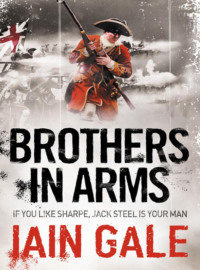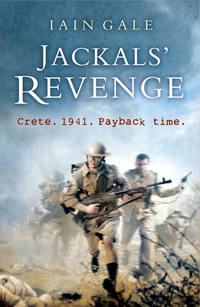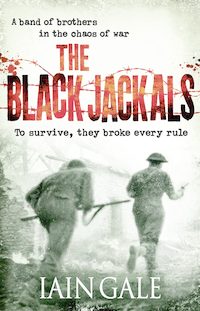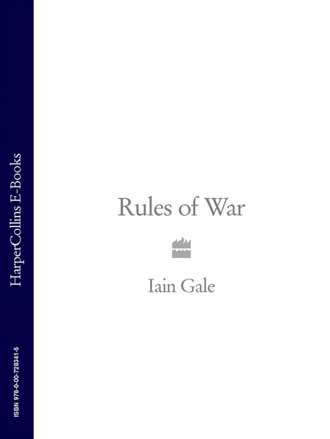
Полная версия
Rules of War

IAIN GALE
Rules of War

For Alexander, Ruaridh and India
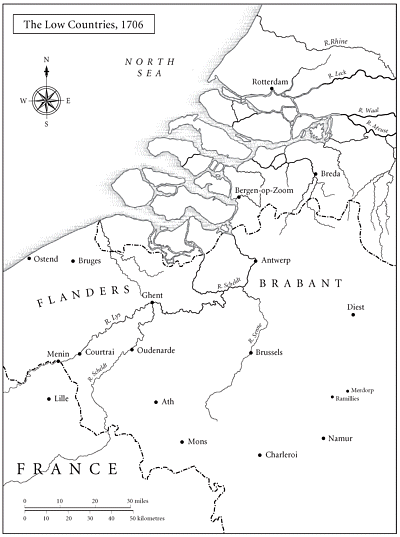
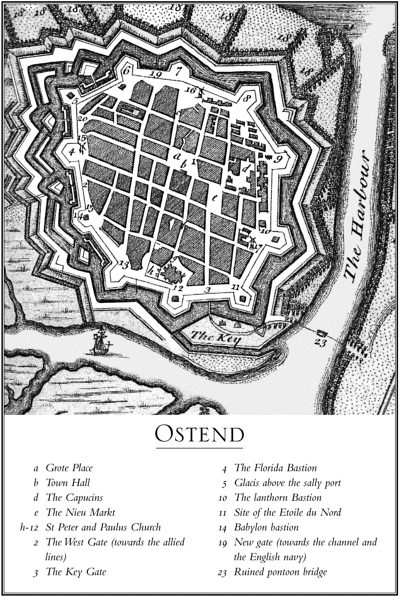
Contents
Title Page Dedication Chapter One Chapter Two Chapter Three Chapter Four Chapter Five Chapter Six Chapter Seven Chapter Eight Chapter Nine Chapter Ten Chapter Eleven Chapter Twelve Chapter Thirteen Chapter Fourteen Chapter Fifteen Chapter Sixteen Epilogue Historical Note By The Same Author Copyright About the Publisher
ONE
Captain Jack Steel, his right hand clenched tightly around the grip of his sword, stared into the morning mist. He paused, listening closely to the emptiness. Then, relaxing his hold on the sword hilt yet keeping it, still sheathed, close by his side, he took up the pace and walked on and waited for death. If it came to him it would be from the front. But the only noises Steel could hear as yet were close behind him. He could sense the presence of his men there although he could not see them, knew that they carried their muskets primed and their bayonets fixed. His men; a company of the finest infantry in all of Queen Anne’s army. The finest infantry in all the world: British Grenadiers.
Yet at this moment, not even the knowledge of their presence was of any real comfort to Steel. Such mists as this he knew could often be the soldier’s friend, shrouding whole armies from unwanted eyes as they advanced to spring a surprise attack. But, he knew too, from bitter experience, that this watery grey haze could also be a deadly foe. With every step now he felt the growing presence of the enemy; imagined the tall horsemen who would appear like ghosts from the enfolding shroud of grey, heard in his imagination the cruel hiss of their sabres as they slashed down towards him. Steel hoped to God that his mind was only chasing phantoms. His commanders had assured him that the French were still far away to their front and he was realistic enough to know that, whether or not this proved to be the case, at this precise moment the only people in whom he could place his faith were those very commanders, and the men who followed him to battle. Ignoring the knot of fear that gnawed at his stomach, Steel brushed away the horrors in his mind and pressed on.
It was approaching six-thirty on a cool May morning – Whitsunday – on a barren patch of high ground which straddled the border between the Spanish Netherlands and Dutch Brabant. This should have been by tradition a day of rest and godliness, but Jack Steel knew that this day would not see God’s work. They were moving west in the vanguard of the army and his orders left him in no doubt as to their purpose. ‘Halt before the village to your front and and take positions for assault.’
The trouble was that Steel had no earthly idea of where that village might be. Nor, for that matter, where he might find the enemy. And now he was starting to wish that the spectres in the mist would prove real. As far as Steel was concerned, battle could not come soon enough. He cussed to himself and spat out the wad of tobacco on which he had been chewing and eased the worn leather strap of the short-barrelled fusil which it was his unique privilege as an officer of Grenadiers to carry on his shoulder. The soft ground was caking his boots with mud and particularly to someone of Steel’s tall frame and muscular build, every step seemed heavier than the last.
The sound of raised voices made him look to his left. Instinctively, his right hand went across to the sword hilt and began to ease the newly greased blade from its scabbard. The red-coated figures of two of his men appeared through the swirling mist, apparently oblivious to their officer, one goading the other in some private joke. Steel relaxed and let the sword slide back. He was about to address them when from behind him another voice, its thick Geordie accent reassuringly familiar, muttered an order whose anger and purpose, though muted, were bitingly clear.
‘Quiet there, you two men. You’re both on sarn’t’s orders now. And don’t go thinking that I don’t know who you are.’
Steel turned to the rear and saw the large frame of his sergeant, the Geordie, Jacob Slaughter, his face boiling with rage. ‘God’s blood, Jacob! Wasn’t this meant to be a surprise attack? Advance to contact with the enemy were my orders, without a word spoken. What price now surprise? The French’ll have us for breakfast. Who the hell were those men? Are they ours? Do I know them?’
Slaughter shook his head. ‘New intake, sir. But they’ll give you no more trouble. On my word.’
‘I’m sure they won’t, Jacob. Not once you’ve finished with them. But it’s too late now for all that. They’ll learn soon enough from the French. Keep talking like that and they won’t see another dawn. It’s no fault of yours. This army’s not what it was.’
Steel knew himself to be right. This was not the same army that had carried its colours at bayonet-point deep into the French lines at Blenheim two years ago and sent the combined armies of France and Bavaria limping back to Alsace. The casualties it had incurred in that bloody campaign had been high and Steel’s unit, Colonel Sir James Farquharson’s Regiment of Foot, had been no exception. There had been other battles too since then and now, of the men with whom he had started this war four years ago, barely half remained, their fallen comrades replaced with green recruits, some of them fresh from Britain. The two garrulous soldiers were only too typical of that lack of experience. Steel shook his head as he paused for a moment and more men advanced past them. He watched one slip on the boggy ground and grope to retrieve his musket and the tall embroidered mitre cap which marked out the Grenadiers, however inexperienced, as a class of their own. And he knew that, for all the losses, the men he had about him now in the company, those who had managed to stay alive these past two years, were as good as he would ever find. Marlborough might have made the army, but this company belonged, heart and soul, to Jack Steel.
Steel wiped a weary hand over his eyes: ‘I tell you, Jacob. What this army needs is another victory. Another Blenheim. And Marlborough knows that as well as we do. That’s why we’re here, in this bloody fog.’
Two tall shapes approached them out of the mist. Two of Steel’s fellow officers, clad in the distinctive blue-trimmed scarlet coats of Farquharson’s regiment, one a lieutenant in his late twenties, the other an ensign of no more than nineteen. Unlike Steel, who chose to tie back his long brown hair with a black silk ribbon, both wore fashionable, full-bottomed brown wigs, falling to their shoulders.
The older of them spoke, breathlessly: ‘Jack, thank God! Impossible to make out a thing in this damned soup. Have you any idea at all where we are?’
‘Henry, for once I will admit that I’m almost as confounded as you. Although, I presume, as we have been travelling due west, that we must by now be approaching our allotted positions in the line.’
Lieutenant Henry Hansam reached into his coat pocket and producing an engraved silver snuff box, took a pinch before continuing. ‘Pray remind me, Jack, what exactly it is we are supposed to be doing in this infernal bog.’
Steel, raising an eyebrow, turned to Slaughter and winked. ‘Would you oblige the lieutenant, Sarn’t?’
Sergeant Slaughter smiled. He knew what Steel intended. They had survived together through the horrors of four years of war and enjoyed a friendship unique between an officer and his sergeant. Though frowned upon by the more orthodox elements among the officers, it was this which had earned their company its enviable reputation within the rank and file of the army and which ensured that fighting on the field of battle, Steel and his sergeant were the equal of anything the enemy might send against them. Slaughter knew that Steel enjoyed teasing the good-natured Hansam and relishing this chance to help him, he adopted the persona of a respectful corporal.
‘Well, if you remember, Mister Hansam, sir, the order came from the duke hisself. And we had it direct from Lord Orkney. Press the right flank, says he. You may as likely find the ground just a bit soft there. That’s what he says, sir.’
‘A bit soft? Soft? Christ almighty, Jack. We’re advancing through a damned marsh. The men are coated in mud. Heaven knows how many have lost their weapons. It’s madness.’
Steel smiled. He turned to the younger officer. ‘Williams, you heard Lieutenant Hansam. Run along and tell My Lord Orkney that he has committed us to, um … to madness. There’s a good fellow.’
The ensign smiled, but did not move.
Hansam frowned: ‘Damn it Jack. You know what I mean by it. No general in his right mind would have an army advance across a bog like this.’
Steel laughed, and patted his friend on the back. ‘Of course, Henry, you’re quite right. You and I know that our commander-in-chief, His Grace the Duke of Marlborough, is the most brilliant general of our age. Tell me truly that you would not follow him to the death. Tell me that there’s not a man of this army who would not do the same. Of course it is not logical to send infantry into battle through a marsh. But since when did Marlborough ever fight by the rules? Was that how we won at Blenheim? Or on the Schellenberg? Now where the devil is our company?’
Looking about him he tried to make out more men of their company of Grenadiers through the mist. They were the tallest men in the regiment and it was not hard to spot them. He was aware of two men to his right and left, their scarlet coats discernible even in this gloom. But beyond them there were only shapes and voices. Somewhere off to the left lay the remaining nine companies of the regiment, and beyond them the bulk of the allied army under Marlborough. As was the custom, it was the honour of the Grenadiers to advance on the extreme right of the battalion, and as Farquharson’s was posted on the far right of the line Steel’s company now found themselves at the outer limit of the army. But at this moment Steel felt as if they might as well be on another continent.
As the snuff began to irritate his nasal passages, Hansam sneezed and spoke through his handkerchief. ‘You’re right of course, Jack. But we’ve been advancing now for close on two hours through this damned fog. For all we know the entire French army could be no more than a few yards directly in front of us.’
Slaughter coughed, respectfully: ‘Oh no, sir. We had his lordship’s word that the French was well to our front. Other side of that village, sir.’
‘Village?’ Steel replied.
‘Aye, a village. Which, were it not for this fog, you would see plain as day directly over there.’ Guessing, he pointed.
‘The village of Autre-Eglise. Our objective.’
Hansam strained to peer through the fog: ‘Damned strange name.’
The younger officer, Tom Williams, the company’s ensign, who until now had remained silent, spoke up eagerly: ‘It means “other church” in French, sir.’
Hansam smiled at him: ‘Thank you, Lieutenant. I was aware of that. But thank you all the same.’
Steel spoke: ‘So where d’you suppose the first church might be, Tom?’
Hansam smiled, and seized the opportunity: ‘Why, Jack, in another village, to be sure. Autre, Autre-Eglise, perhaps.’
‘Very droll, Henry. Now I think we had better follow the men, d’you not. It wouldn’t do for them to find the French before we do, eh?’
As the officers moved away obliquely to their left and front to find their platoon and they all began to advance as fast as the ground permitted, Steel contemplated how life seemed constantly to bring one full circle. He had come through the slaughter of Blenheim two years ago and last year’s bloody adventure in Spain only to find himself back here again on Flanders soil, where his soldiering had begun and where the British army always seemed to be. Flanders – where, at a godforsaken place called Steenkirk, he had first tasted battle, as a seventeen-year-old ensign.
He had been fourteen years with the colours since then and naturally he knew why they were really here now. Of course, Marlborough needed a victory. Blenheim seemed an age ago and their Dutch allies were becoming restless. Last year had seen no northern triumphs, just an endless succession of marches and counter-marches. True, they had broken the massive French lines of fortification which traversed occupied Belgium. But there had been no opportunity then to exploit that success with a victory in the field. Now, Steel knew, here and in London, Marlborough’s enemies were again intriguing against him. The only answer was a victory. So, they were here to beat the French and if that meant crossing this filthy bog, then that was what they would do. Snapping back to the matter in hand, he grew aware now that, with every step forward they took, their line of battle was becoming increasingly ragged.
He turned to Slaughter: ‘Try to dress the line, Sarn’t – wherever it is. We can’t afford to lose any men before we’ve even found the enemy.’
‘Right you are, Mister Steel.’
Steel sighed: ‘And Jacob, do try to just address me as “sir”. At least allow me the appearance of being a captain.’
Steel, although promoted to captain after Blenheim by Marlborough himself, had not yet had the field promotion ratified by the high command at the Horse Guards. That had been two years ago and now he had almost given up hope. He could only presume that he was out of favour at court and he did not need to guess at the reason. He had a lover in London – if that were the right term for someone with whom you had fallen so surely out of love. Arabella Moore was a jealous mistress, ten years his senior and so dangerously close to the queen as to be able to deny him his captaincy. Doubtless Arabella had heard of the romance that Steel had forged in the days before Blenheim, a liaison with a pretty Bavarian girl who he had hoped might bring him lasting happiness. But now Louisa Weber was beyond his reach. On his return from Spain he had found her married to an officer in the Royals. Well, in truth, he too had not been over-faithful to her and so it was for the best. But it had not prevented Arabella’s jealousy, nor her continuing spite. Clearly, if she could not have him, then she was determined at least to block his advancement in the army.
What, Steel wondered, would he have to do to achieve on paper the promotion he had earned and now so urgently needed? The bounty from Blenheim and most of that he had gleaned in such danger in the previous year’s campaign had dwindled all too fast. Very soon he would again be in serious debt. Pursued yet again, no doubt for the endless round of an officer’s expenses and mess bills by their assiduous regimental adjutant, Major Frampton. He prayed that this coming fight might yield an opportunity for fortune and glory for, in his experience, one seldom came without the other. And neither could be achieved without that danger to which Steel was now so helplessly addicted. For, despite all his horrors of phantoms in the mist, he knew that it was the thrill of beating fate which made him a soldier; the knowledge that at any moment he could be killed or horribly mutilated and the unparalleled exhilaration which came after a battle, that delirious moment when you knew that you had cheated death, once again. There must now be an opportunity for him to impress again, to bring himself to the attention of Marlborough and even the queen herself. He would be gazetted captain.
A voice brought him back to the present. Slaughter cocked his musket: ‘Rider, sir. Coming from our left.’
Again, instinctively, Steel’s hand closed around the grip of his sword and he made to draw the blade.
The cavalryman rode straight at them through the mist. Steel saw a scarlet coat, but knowing that the French too dressed many of their finest cavalry in red, did not relax his hold on the sword but drew it further from its sheath. Slaughter took aim. It was only at ten yards that they realized that the man had not yet drawn his sword and seconds later they saw the green cockade that he wore in his tricorne hat: the allied field recognition symbol for the campaign. Steel recognized him as a young cornet of English cavalry.
The man reined up, doffed his hat and spoke in clipped and haughty tones which marked his position as an aide-de-camp. ‘Cornet Hamilton, sir. Attached to the general staff. I carry orders from Lord Orkney for Colonel Farquharson. Can you direct me to him? Where is he?’
Steel smiled at him and indicated the mist: ‘You’re guess is as good as mine, Cornet. I think you’d be just as well to give them to me. Captain Steel – I command Farquharson’s Grenadier company.’
Hamilton frowned and weighed up his options. ‘Very well. Your regiment is to halt at once, Captain. You have advanced too far. The French are standing just beyond this ground. Ten battalions of them at least, as far as we can tell. You will halt and form your lines, here. No further.’
Steel nodded; ‘Thank you.’ He turned towards Williams who had appeared from the mist. ‘Mister Williams, go and find the colonel. Tell him to halt at once. Form lines here.’
As Williams hurried over to the left of the regiment, Hamilton replaced his hat and pulled round his horse. Steel watched him gallop away into the mist and losing sight of him, returned to the business in hand.
A hundred yards away to the left, Cornet Hamilton picked his way with care through the redcoated ranks who now stood at ease in their regiments scattered across the hillside. As he approached the rear formations the mist gradually became thinner until he eventually emerged on the crest of a ridge. From here, even through the clouds of grey, the entire allied army was laid out before him. He rode slowly along the front of a regiment of Dutch infantry and found a knot of mounted officers, some of whom were attempting through their telescopes to get a better view of the situation unfolding below them. Looking quickly and unobtrusively at their faces he found the man he was seeking and trotting up, reined in, saluted and whispered towards him.
Close by, but out of earshot, to the front and centre of the group, an upright figure in a red coat emblazoned with a garter star, his gold-trimmed hat crowning an expensive, full-bottomed wig, darted piercing emerald green eyes across the field. John Churchill, Duke of Marlborough, captain-general of the allied army, turned to speak to the man at his side, William Cadogan, his trusted quartermaster-general: ‘You know, William, I would that we had gone into Italy, as I had originally planned. But I do believe that we shall beat the French today. So I really must not protest at that prospect. All things told, you must agree that this is good ground. What say you, Field-Marshal Overkirk? Will it suit your Dutch?’
‘We will fight the French wherever we may, Your Grace. This is as good a position as I have seen to cross swords with them. My men will not let you down.’
‘I am certain of it, Field-Marshal. I have every faith in them.’ He turned back to Cadogan: ‘Is that not so, William? We rank our Dutch allies quite as highly as our own boys.’ Cadogan opened his mouth to reply but was interrupted by a small, dark-haired man with a prominent nose who wore a modest, blue civilian-style coat and sat on a bay horse alongside the duke.
Mijnheer Sicco van Goslinga, the newly arrived Dutch field deputy to the general staff, had been deep in thought for some minutes. Now he was frowning. He shook his head: ‘I am sorry Your Grace, but I must protest at your opinion. It will not do to deploy on our right. You see the ground there is no more than marsh. With such hedges, ditches and marshes it would be madness to move infantry over such ground. You must agree, sir.’
Marlborough smiled back at him: ‘Thank you for your advice, Mijnheer. And I shall take note of it and if it should indeed be madness then I give you my word that should it fail I shall summon a physician.’
Cadogan suppressed the beginnings of a smile.
Marlborough quickly turned back to his left: ‘Hawkins? Have we intelligence from the right flank? Are Lord Orkney’s men in place?’
Colonel James Hawkins broke off from his conversation with Cornet Hamilton and nodded to Marlborough. ‘Aye, sir. I have it from the cornet here. They are this moment halted above the village. The right of your line is secure, Your Grace. Although Hamilton here tells me that we just stopped the infantry in time, or our lads would have been on the French already by now.’
Marlborough laughed. ‘They shall be at them soon enough, James. That will do for the moment.’
Half a mile away, to Marlborough’s right, another knot of officers stood before their men. Steel peered across the valley. At last the mist was lifting and the countryside was revealed to them. In the course of reforming the line, they had fallen back some fifty yards and found a small area of less boggy ground. Steel gazed now across acres of fields green with young corn, a rolling plateau of open country, quite without hedges or walls of any sort.
Hansam spoke: ‘This is good cavalry country, Jack. The horse’ll have a field day.’
‘I daresay they will, Henry, but it looks rotten bad for us. We’re to take that village and as far as I can see as soon as we step off you can bet that the French artillery will open up. And not so much as a ditch for cover. Nothing to stop a ball from carrying away four, six … ten files of infantry. I wonder that our guns will not do the same, ere long.’
Beyond the marshes which flanked the stream running below their position on a gentle hill beyond the waving corn, the entire Franco-Bavarian army stood before them, strung out on a front four miles long. White and blue uniforms as far as the eye could see, punctuated only by the red of the Irish mercenary regiments in French pay – the Wild Geese – and that of the cavalry of King Louis’ own bodyguard, the Gens d’ Armes. It was the whole might of France. Well, he thought, they had broken them at Blenheim and they could damn well do it again today.
Williams spoke: ‘Seems to me there’s more of them here than there were at Blenheim, sir.’
‘You may be right, Tom. King Louis has half a million men under arms, they say.’
‘But we shall best them again, sir. Of that I’m certain.’
Steel smiled and clapped the ensign on the back. ‘Aye. I’m as sure as you. Now, look to the men. Don’t have them standing-to for too long at a time. Stand them at ease a while.’
As Williams looked to his order, Steel gazed down at the ground. For the last few minutes he had been aware that his right leg was slowly sinking into the boggy field. He cursed and began to doubt Williams’ certainty. Not here too? The whole area was sodden. How did Marlborough intend them to advance on this? Struggling to keep his balance and desperate not to reveal his plight to the men, he reached down with both hands to ease his leg free from the mud into which it was disappearing and swore gently into the cool morning. He gave one last pull and with a squelch the tall black boot emerged from the boggy ground. Steel shook his leg, tried to remove some of the mud and looked over his right shoulder.
Slaughter was grinning, shaking his head. ‘You’re like me, sir. Must ’ave ate too big a breakfast. Don’t know when to stop. Always like that before a fight. Nerves, it is.’
‘Jacob, if I wanted your homespun wisdom on the subject of my diet I would ask for it. It’s the ground, man. D’you see? Too soft. Even here.’


